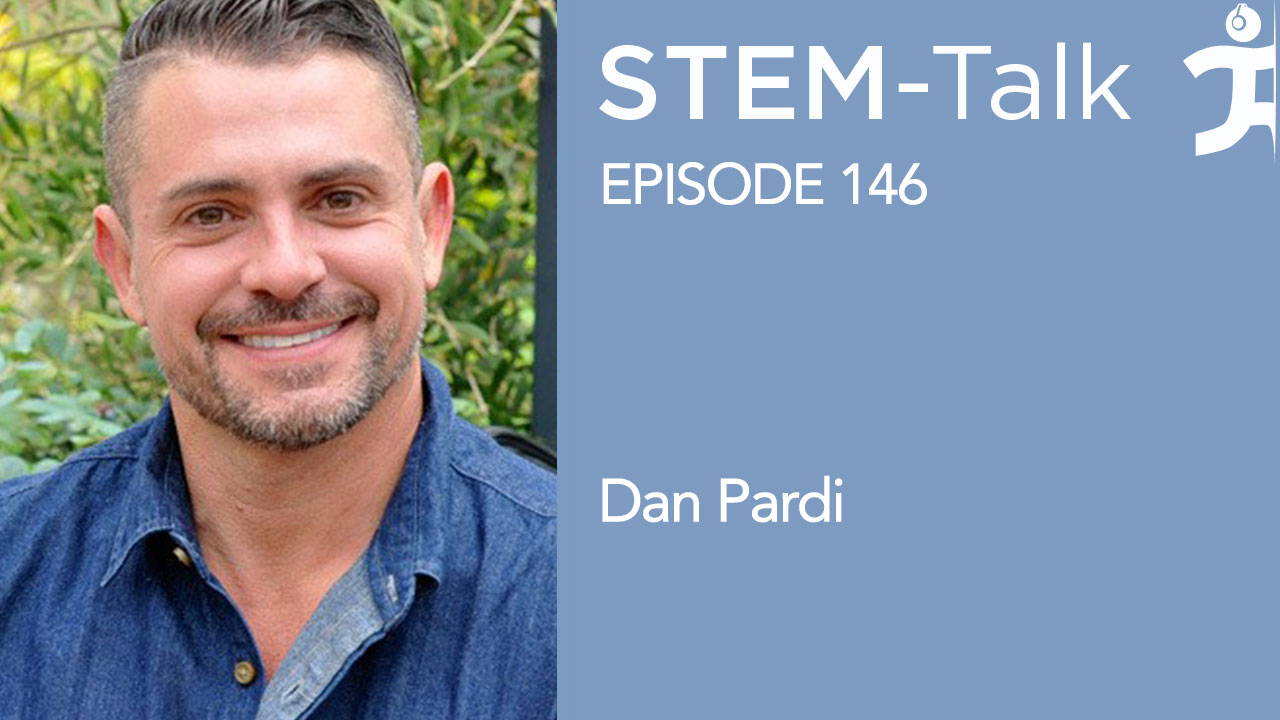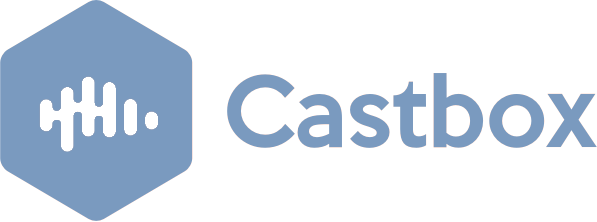STEM-Talk
Episode 146: Dan Pardi talks about behaviors to improve healthspan
// Dec 15, 2022

Our guest today is Dr. Dan Pardi, the CEO of humanOS.me, a digital health training application. Dan is well-known for his research into sleep and has collaborated with many high-performing organizations, from Silicon Valley venture capitalists to companies like Adobe, Salesforce, Workday, Pandora, Intuitive Surgical, and more.
He also works with several branches of the U.S. Military to help elite warfighters maintain vigilant performance in both combat and non-combat conditions.
Dan’s podcast, humanOS Radio, is the official podcast of the Sleep Research Society, the Canadian Sleep Society, and a content partner of the Buck Institute on Aging. Dan collaborated with more than 100 science professors around the globe to create his digital humanOS application.
Dan has a Ph.D. in cognitive neuroscience from Leiden University in the Netherlands and Stanford University in the United States. He has a master’s degree in exercise physiology from Florida State University and currently lives in Austin, Texas, with his wife, two young boys, and their dog, Wally.
Joining STEM-Talk host Dr. Ken Ford for today’s conversation with Dan is Dr. Marcas Bamman, a senior research scientist here at IHMC. Marcas was a STEM-Talk guest on episode 116. In today’s interview with Dan, we cover his early career in bioinformatics and how a trip to Moscow led to his doctoral research of sleep and treatments for narcolepsy.
He also talks about the Loop Model to Adopt and Sustain Health Behaviors, a program he developed during his Ph.D. studies. The Loop Model became the core of his company, humanOS.
Finally, Dan talks about the concepts of “actual health,” health-performance experts and a shift in what aging means, which he believes is important to improving the quality of life for all of us.
Show notes:
[00:03:19] Marcas starts the interview by asking Dan to talk about his years growing up in Northern California’s Marin County. [00:04:06] Ken asks Dan about building radio-controlled cars with his father. [00:05:11] Marcas explains that Dan’s father was a successful businessman who, after a successful career as a salesman for Remco selling kitchenware, started his own company in California that grew to 200 employees. Dan has been quoted as saying that one of the lessons he learned from his father was the value of relationships. Marcas asks how that lesson has affected Dan’s life. [00:06:29] Dan talks about his passion for basketball and how his time at the Cap Lavin camp influenced his early life. [00:08:15] Marcas mentions that Dan’s “science life” seems to have begun with a seventh-grade science-fair project that ended up landing him a job with Nike. Marcas asks Dan to talk about that story. [00:09:26] Ken mentions that Dan went to the University of San Francisco for his bachelor’s degree and then went to Florida State for his Masters in Exercise Physiology. Ken asks what led Dan to FSU. [00:10:26] Ken asks why Dan decided to pursue a career in cancer research, going to work at the Preventive Medicine Research Institute in Northern California after graduating. [00:12:04] Marcas commends Dan for being ahead of his time by leveraging the new technological development of the internet portal to empower life scientists while he was working with the Bioinformatics Biotech DoubleTwist, and asks what that experience was like. [00:13:41] Ken asks Dan how a trip to Moscow led Dan to pursue a Ph.D. at Leiden University and Stanford, after already working in the industry for 10 years. [00:15:17] Marcas explains that Dan’s Ph.D. research at the Zeitzer Circadian Biology Lab at Stanford University focused on gamma-hydroxybutyrate (GHB), sleep and ingestive behavior. Marcas asks what was most interesting about this research for Dan. [00:16:24] Marcas asks about a randomized controlled trial that Dan conducted to look into ecologically relevant amounts of sleep loss. This trial enrolled 50 participants and manipulated their next-day alertness by randomly assigning different levels of sleep. Dan talks about the findings of this study. [00:21:50] Marcas explains that while Dan was working on his Ph.D., he developed a behavior model called the Loop Model to Adopt and Sustain Health Behaviors. Marcas goes on to explain that Dan has presented this model at several healthcare conferences, such as Stanford Medicine X and Health 2.0, and asks Dan to explain what this model is and how it works. [00:24:53] Marcas mentions that Dan’s company, humanOS.me, is described as a digital health training application and asks what this means. [00:26:23] Ken mentions that simply giving people more information doesn’t drive changes in health-related behaviors, and asks how humanOS.me approaches things differently to address this problem. [00:29:03] Ken asks if Dan sees any downsides in tracking health markers. Ken mentions that STEM-Talk listeners often ask about the quality of data collected, but Ken goes on to say that there are also problems of becoming hyper-focused on things like sleep and food to the point where these things are no longer pleasurable experiences at all. [00:35:02] Ken asks about the concept of health, mentioning that in 1948 the World Health Organization defined “health” as “a state of complete physical, mental and social well-being and not merely the absence of disease or infirmity.” Ken mentions that this definition has been criticized for being too demanding and asks Dan what his thoughts are on this definition. [00:37:51] Marcas mentions that a biogerontologist named Suresh Rattan at Aarhus University in Denmark, defines health as the maintenance of homodynamic space, and asks Dan to explain for listeners what this means. [00:42:44] Marcas asks Dan what he means by “Actual Health,” the concept that is the core of the upcoming book that Dan is co-authoring with STEM-Talk guest Josh Turknett. [00:44:56] Marcas mentions that Dan has been working on developing the concept of a health performance expert, and to set the stage for this discussion, Marcas asks what Dan’s views are on the gaps in our current healthcare system and how these might be addressed. [00:50:17] Ken mentions that he likes that Dan’s idea of a health performance expert is something that should develop independently, even in coordination with, the current sick-care system. Dan elaborates on this idea. [00:57:47] Marcas explains that in Dan’s TED talk on optimizing light for health, he opened by talking about the impact of microgravity on health. Marcas asks Dan to talk about why he chose to open with that topic. [0:59:47] Ken shifts to talk about the difference between age and aging, making the point that we often think of aging as a continual decline from our peak but goes on to say that age and aging are more nuanced than that infers. [01:07:20] Marcas mentions that from an evolutionary biology perspective, age and experience are valuable to the success of one’s progeny and the tribe one’s offspring inhabit, as the grandparent hypothesis posits. Marcas asks if Dan agrees that this emphasizes the importance of working at preserving our cognitive functioning as we age. [01:10:27] Marcas asks Dan to talk about his personal practices to maintain or improve overall health, and what the key ingredients of optimized health are. [01:16:36] Marcas asks Dan what he hopes will be the key takeaway for people to remember from this episode.Links:
Dan Pardi bio and IHMC lecture
Should this not be a link to Marcas?






